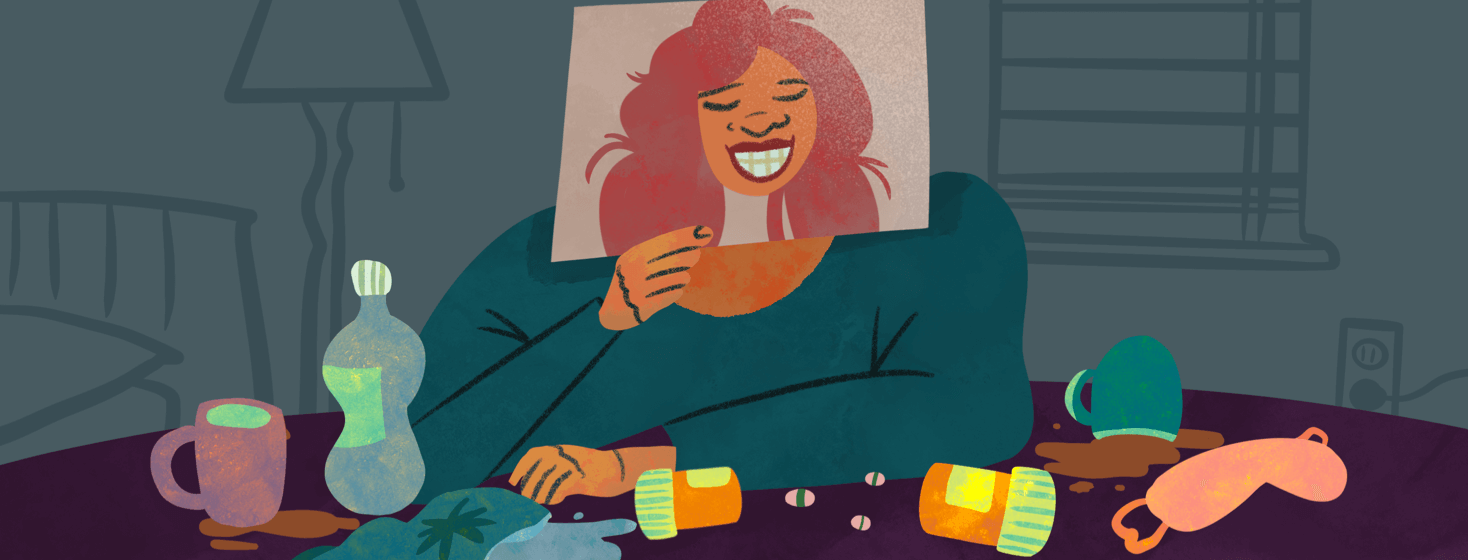Migraineurs: The Best Fakers in the World
People with migraines are constantly accused of faking pain and attacks to get attention and/or get out of responsibilities and required events. I would argue migraineurs ARE the biggest fakers out there. But not for the reasons people think.
Why do we fake feeling well?
People with migraine frequently fake wellness for numerous reasons. Who would want attention for a health condition that potentially makes us seem weak and less than? We don’t want to talk on and on about something negative and upsetting. Migraine is something we can’t change. It’s easier to avoid the whole thing by not bringing it up. So, when asked how we are, many of us will just say, “I’m fine.” We fake wellness as a means of avoiding the topic of migraine altogether.
Are we faking migraine for attention?
It’s ironic that we are accused of faking migraine for attention. It seems to me that we fake that we are fine in order to NOT to draw attention to ourselves. Having a condition that causes chronic or perhaps daily pain, we grow tired of talking about something so upsetting and fear people think we are lying. Easier to stay quiet and just pretend we are well. We fly under the radar and muscle through the pain to avoid the unwanted gaze and potential judgment of others.
Featured Forum
View all responsesWhat advice do we receive in response?
“Just drink a cup of coffee! The caffeine will stop your headache in its tracks!” We’ve all heard the well-meaning but often over-simplified advice from friends, family, and coworkers. These statements illustrate a lack of understanding that migraine is a complex neurological disease and not just a headache. Sometimes we don’t have the energy to educate others on this topic (or we have tried and failed to do so in the past), so again it’s easier to simply fake wellness and put on a happy (if grimacing) face and proceed through the pain and other complex symptoms.
Why don't we always take sick days?
Additionally, we fake wellness to keep our jobs (not to get out of them). Many of us work and have a limited amount of sick and vacation days. So we will show up to work on days we really shouldn’t. Days when we have to excuse ourselves to vomit in the bathroom. Days when we can’t think clearly or find the words we need to complete a sentence. Even though migraine is the first leading cause of disability among people under the age of 50, it is very difficult to attain.1 So most of us must work through the pain and symptoms. We need to pay our rent or mortgage, so we show up and fake wellness.
Why don't we miss out on events?
We fake wellness so we can show up at events that are important to our families and us. While one of the worst things about migraine is how many important events we end up missing (from weddings to soccer games, funerals, to births), we often push ourselves to be there when we really shouldn’t. We don’t want to let this awful condition “win” and rob us of these important life events. So we get on airplanes and show up with eyes watering and do our best to be there.
What about the days we can't fake feeling well?
Of course, there are times that faking wellness is simply not possible. Migraine forces us to the sidelines more times than we care to acknowledge, but I think you’ll find with most migraineurs, few would ever choose to fake an attack. The days without migraine are glorious and worth celebrating.
So are migraineurs fakers? Yes. I think you’ll find, more often than not, migraineurs are faking wellness, not attacks.
Are you a migraine wellness faker? Share your story in the comment section below.

Join the conversation